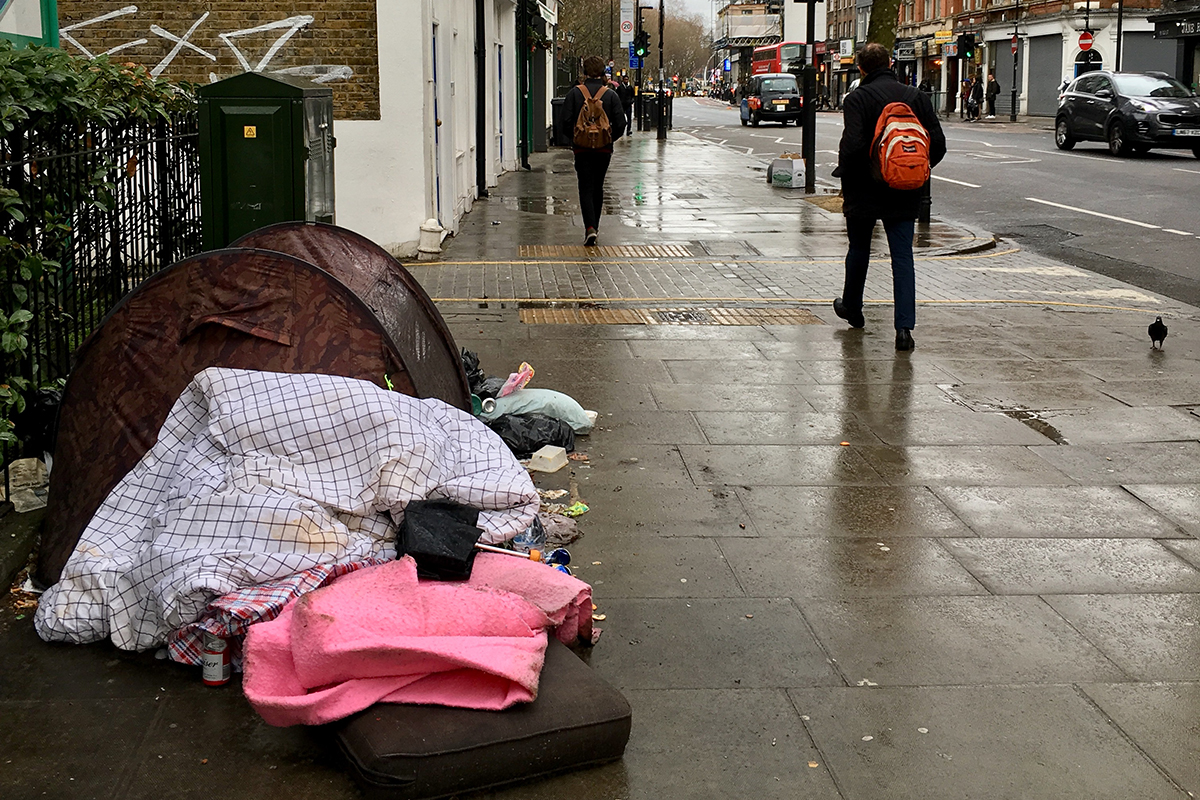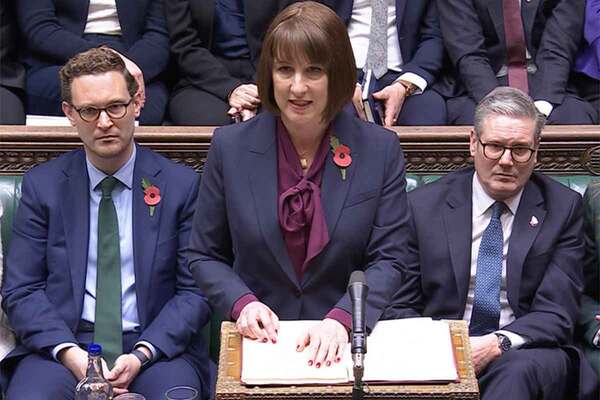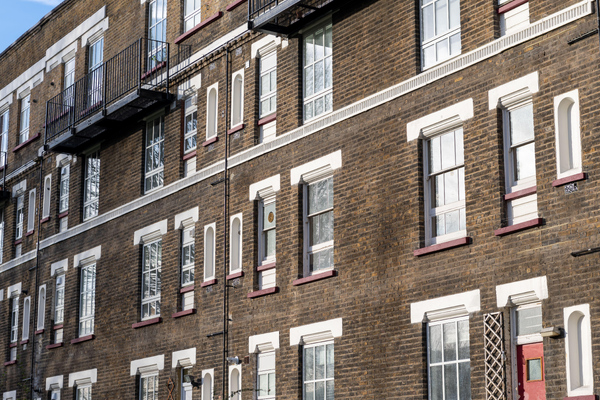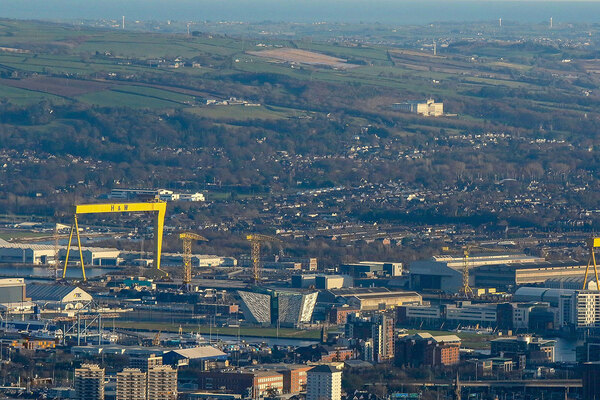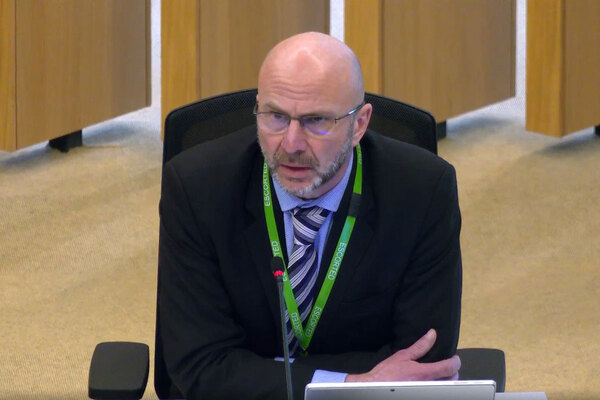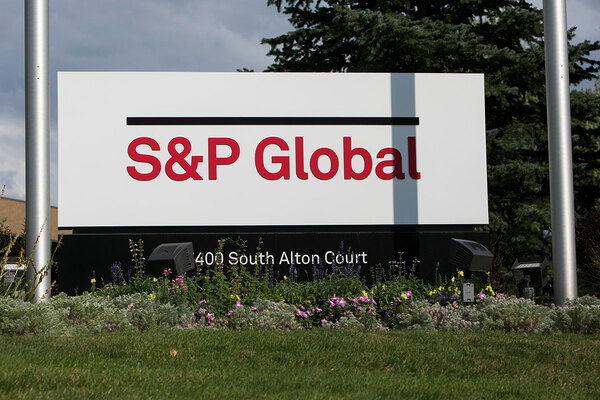You are viewing 1 of your 1 free articles
National Insurance hikes will cost homelessness sector up to £60m per year, charities warn
National Insurance hikes for employers will cost the homelessness sector between £50m and £60m per year, charities have warned.
In a letter to the chancellor, 110 chief executives of homelessness organisations warned that the hike posed a “very real threat” and will have an “immediate detrimental impact on the lives of the thousands of people who are supported and accommodated on a daily basis helping them move on from the worst forms of homelessness and rebuild their lives”.
Chancellor Rachel Reeves announced in the Budget that, from April, the rate employers pay in National Insurance contributions will rise from 13.8% to 15%.
Alongside this, the threshold at which they start paying the tax on each employee’s salary will be reduced from £9,100 per year to £5,000.
However, the letter, coordinated by Homeless Link and signed by the chief executives of Crisis, St Mungo’s and Riverside, outlined the pressure the extra up to £60m in costs will put on the sector, including presenting a “significant challenge” to its ability to prevent and end homelessness.
The organisations asked for the same treatment as the public sector, where the government has arranged to pay a rebate for additional National Insurance costs.
They wrote: “We note that you have made an arrangement to pay a rebate to the public sector for additional costs of National Insurance.
“We ask that you provide a similar rebate or relief to the homelessness sector – who provide vital services for the public sector– and require [the Ministry of Housing, Communities and Local Government (MHCLG)] and local authorities to cover the increased costs by increasing the value of grants and contracts for 2025-26 onwards.”
The government announced an extra £233m in funding in the Budget to tackle homelessness.
In the letter, the organisations welcomed the “prominence of homelessness” within the Budget, the extra funding, the government’s commitment to a cross-departmental homelessness strategy, and its prioritisation of reviewing homelessness spending across departments from 2026 onwards.
“We look forward to working collectively with you and colleagues at both Treasury and MHCLG to agree how these funds can be spent most effectively,” they said.
However, they said they were “extremely concerned that in the short term we face a very real threat to homelessness services”.
“A significant number of homelessness services commissioned by local government are delivered by not-for-profit organisations,” they wrote, including everything from street outreach, through to emergency beds, floating individual support and counselling, supported housing provision and upstream homelessness prevention.
According to the letter, many of these services “operate a very narrow margin, driven down by years of competitive tendering”.
Rick Henderson, chief executive of Homeless Link, said homelessness services were “already under enormous pressure from overstretched funding”, and increasing demand for services “as the number of people who are facing homelessness is sky-rocketing”.
He said: “Whilst extra money was allocated in the Budget, it is unclear whether this will reach frontline services or disappear into the temporary-accommodation funding black hole.
“I fear that this National Insurance rise could be the nail in the coffin for many service providers.
“Some are facing hundreds of thousands of pounds in additional tax bills. The public sector is getting a rebate and we want to make sure that this is also made available for vital homelessness services.
“I have rarely seen the sector as angry and frightened as they are by this proposal. It is a very real threat that could impact thousands of people who are currently homeless or threatened with homelessness, leaving them without support. [One hundred and ten] organisations of every shape and size and from every corner of the country have signed this letter. We need action now.”
A government spokesperson said: “We have inherited devastating levels of homelessness, and we are taking action to get back on track to end this issue for good, which is why, in the Budget, we took the total spending on reducing homelessness to nearly £1bn in 2025-26.
“Reducing social inequalities is also vital to fix this problem. Our balanced and proportionate approach will help us raise the money needed to fix public services so that they can benefit everyone, as well as fund the delivery of up to 5,000 social homes.”
The government also pointed to its doubling of the Employment Allowance to £10,500 in the Budget, to help protect smaller businesses.
A housing association chief executive previously warned that the National Insurance rise could “endanger the government’s housebuilding plans” of delivering 1.5 million homes this parliament.
Sign up for our homelessness bulletin
Already have an account? Click here to manage your newsletters
